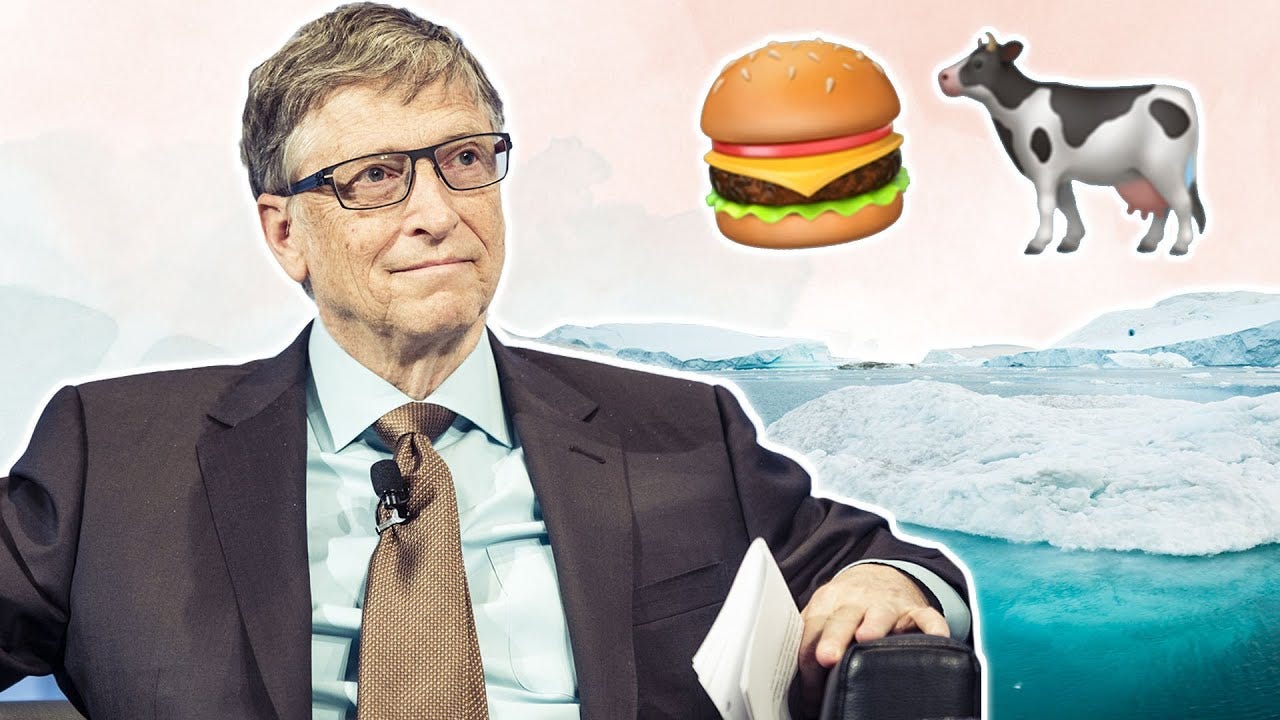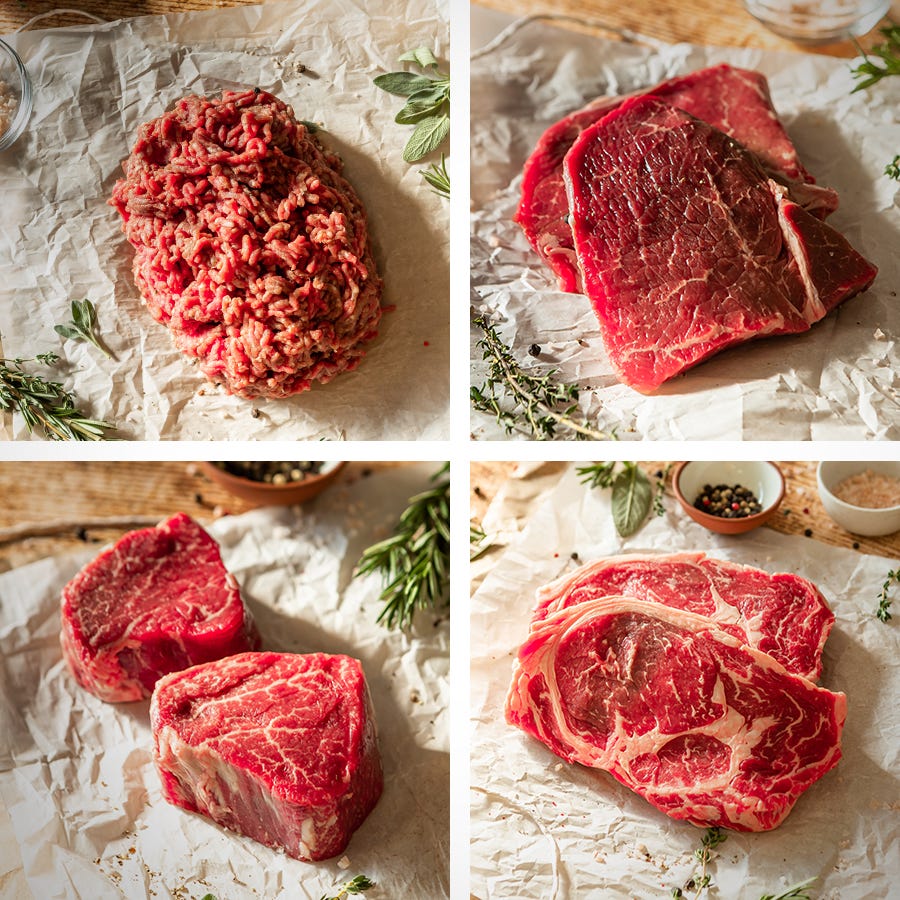🧑🌾 A bad gate-keeper: Gates’ overly simplistic view of meat
Welcome back to The Regeneration Weekly, a newsletter delivering regenerative food and agriculture news to your inbox every Friday. Not a subscriber yet?
Health: In a recent interview with the MIT Technology Review, Bill Gates struck a chord when he asserted that all “rich countries'' should enact legislation requiring citizens to convert to eating “100% synthetic beef” to combat climate change. Ironically, Microsoft, the company Gates himself co-founded, recently purchased more than 40,000 tonnes of sequestered soil carbon from a regenerative livestock operation. Nonetheless, Gates has spent the last few years proselytizing and financing startups like Impossible Foods, Beyond Meat, Memphis Meats, and Eat Just, which are all rushing to commercialize animal protein alternatives. But after an initial swell of market hype, the modern cohort of plant-based and cellular-based meat brands has run into challenges including stock rating downgrades, steep price discounting to boost sales, and legal disputes over food safety standards.
Shortly after the interview was released, a wave of domain experts entered the conversation on social media - urging Gates to spend more time studying the nuance of livestock production.
Gates’ narrow-minded claims about the impacts of livestock on the environment fail to recognize that not all grazing systems are created equal. While centralized animal feeding operations (CAFOs) are bad for the planet, claiming that all forms of meat production are destructive is patently false. Rather than halting the appetite for real meat by demonizing its consumption, a better way to catalyze systemic change would be to focus on where animals add the most value. In fact, a 2019 report by the United Nations Food and Agriculture Organization (FAO) determined that:
86% of the forages, crop residues, and other by-products that comprise livestock feed is not suitable for human consumption.
Animal products account for 18% of global calories and 34% of global protein consumption. And in Latin American countries, low carbon grazing systems contribute to food security, as they produce more valuable nutrients for humans (such as proteins) than they consume.
Of the 2.5 billion hectares needed for livestock production, 77 percent are grasslands- areas where the vegetation is dominated by grasses. And a large share of existing pastures could only be used for grazing animals because they are too degraded for cropland.
When naive gatekeepers assert that “meat is bad” and end it there, we miss the chance to inform consumers about how to source protein that can nourish them and breathe new life into degraded land. Gates himself has noted that for the poorest countries, lab-grown meat substitutes will not be economically viable enough to displace beef. We must acknowledge that over 820 million people suffer from hunger or malnutrition. And more than 383 million people living below the international poverty line are pastoralists or smallholders relying on livestock for food security and income. Therefore, we should invest in the regenerative grazing sector to increase food security, restore marginal land, and expand the demand for regenerative graziers who serve as ecological service providers.
Listen: It is no secret that industrial agriculture is destructive to the welfare of people, animals, and the planet. On the other end of the continuum are regenerative practices that increase the complexity of farmland. When there is a continual increase in biodiversity in an agro-ecosystem, it produces higher yields, more profit for producers, and better-quality food. In this mini-episode of The Doctor’s Farmacy, Mark Hyman discusses how consumers can vote with their dollars and our forks for a more sustainable food system. The easiest way to do so is by eating like a “regenetarian,” the ninth principle of his Pegan Diet. This 21-principle framework serves as a definitive guide for using food as medicine and consuming in a way that revitalizes the planet and humanity.
Shop: In the aftermath of the winter storms that hit Texas last week, Wholesome Meats is offering Texans a 25 percent discount with the code “TEXAS25” at checkout. The San Antonio-based business takes pride in sourcing high-quality ground beef and prime cuts from a network of local ranchers who use regenerative grazing practices to produce climate-friendly products. Wholesome Meats is also offering a 10 percent discount to ANYONE who signs up for its email list.
The Regeneration is brought to you by Wholesome Meats | Soilworks | PastureMap.







